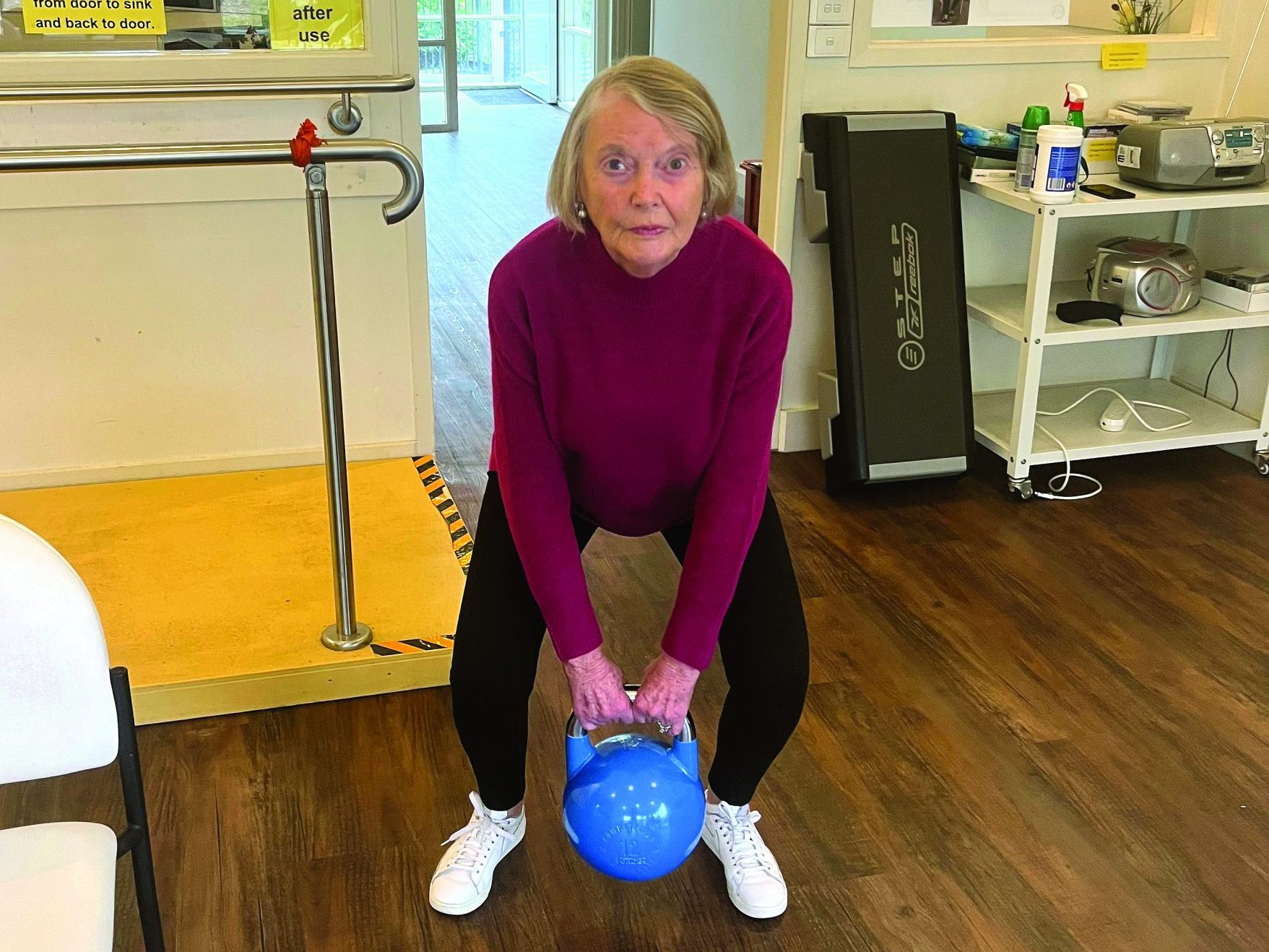With classes running each day from Monday to Thursday, clients range in ages, backgrounds, and abilities. Some have cognitive impairments such as dementia, mobility issues, or chronic conditions such as osteoarthritis. Regardless, they all enjoy their sessions and work within their individual abilities, finding the social aspect of the sessions just as valuable as the physical activity.
Each client has a personalised training program to address their individual health and fitness requirements, but they all undertake exercises that focus on improving balance and posture. The aim here is to reduce their chances of having a fall.
“Everyone has a balance component to their program, so even though the strength part is tailored to what they each need, balance is the key exercise area that everyone has to do,” says David.
David considers a client’s medical history, particularly in relation to previous and existing injuries. Each client completes a basic fitness assessment, evaluating their mobility, balance, and strength prior to commencing their sessions.
The program consists of a 45-minute physical training session, with a 30-minute social session held immediately after. Here, David runs the wildly popular morning tea quiz, and clients can catch up and chat with friends.
“A lot of the clients get as much out of the social interaction as they do from the physical exercise – a lot of them live alone or they are carers for a partner, so getting out of the house is a chance to have some time for themselves,” says David.
“The physical and mental health benefits of exercise are well known. We like to have fun in our strength training sessions. I certainly think all our clients are benefitting. They all enjoy the training and appreciate what we are trying to do.”
Photo: Strength training client Ruth Brown.










